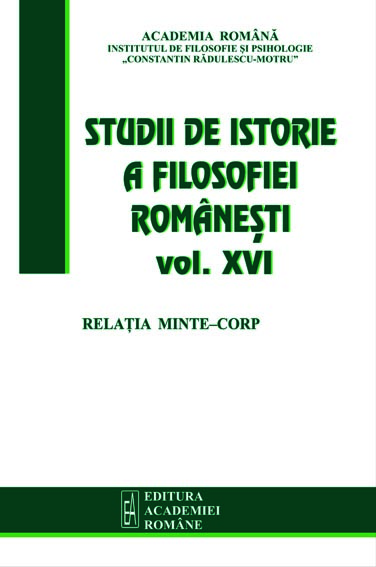Receptarea și imaginea yogăi în lexicografia românească (I)
The reception and image of Yoga in Romanian lexicography (I)
Author(s): Liviu BordaşSubject(s): Cultural history, Metaphysics, Local History / Microhistory, Indian Philosophy, Philology, History of Religion
Published by: Editura Academiei Române
Keywords: Romania; lexicography; neology; indology; fakir; fakirism; yoga; yogism; tantra; tantrism; hypnosis; suggestion; mysticism; Communism; Post-Communism; Mircea Eliade; Transcendental Meditation;
Summary/Abstract: The first part of the paper offers an overall and detailed survey of the reception and image of yoga in various types of Romanian dictionaries (linguistic, encyclopedic, specialized, etc.), while the second part is reserved for a special discussion of the dictionaries devoted to religion during the Communist era.Three words, with their derivates, have been taken into consideration: “fakir” (“fakirism”, “fakiric”, “fakiristic”, etc.), “yoga” (“yogism”, “yogistic”, “yogin”/ “yogist”, etc.), and “tantra” (“tantrism”, “tantric”, “tantrist”, etc.). The timeframe covers the 20th century till the end of 1989, with incursions before (for “fakir”, etc.) and after (for “yoga”, “tantra”, etc.) this period.The survey offers ample material for a discussion on influences between diction¬aries and cases of intertextuality, as well as on the impact of political contexts on understanding yoga and the interpretative patterns which survive political eras.
Journal: Studii de istorie a filosofiei româneşti
- Issue Year: XVI/2020
- Issue No: 16
- Page Range: 51-77
- Page Count: 27
- Language: Romanian

